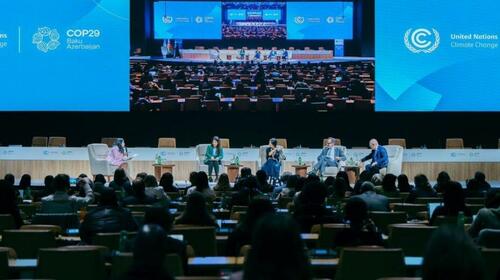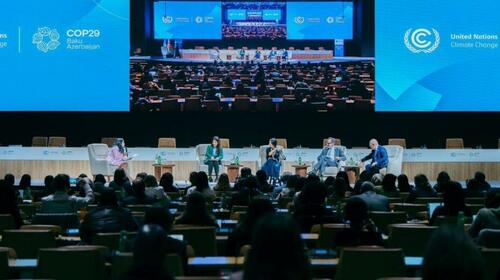The Failure Of COP29: Does The “Green Agenda” Have A Future?
Following the conclusion of the multilateral climate conference COP29, held in Baku, Azerbaijan, the atmosphere is one of defeat.
Nearly an entire week of speeches and endless meetings did not suffice to reach a reasonable consensus on a series of practical measures that had been anticipated.
Specifically, the debate on funding climate policies sank.
The so-called “developing countries” had expected an annual grant policy exceeding $1 trillion for energy transition and climate change mitigation policies, but only $300 billion per year will be allocated—optimistically.
Moreover, this sum will not necessarily be in the form of grants but may include loans and other financing mechanisms that bring interest and debt.
India denounced the final result of COP29, supported by Bolivia, Cuba, and Nigeria, as a farce and an insult from developed countries to developing nations.
This financing debate will now be deferred to COP30, scheduled to take place in Brazil in 2025. However, the chances of COP30 succeeding where COP29 failed seem very slim.
While climate alarmism and eco-globalism are now part of Brazil’s official ideology, in the rest of the world, these postmodern beliefs are losing momentum.
Take, for example, the reasons why expanding funding for the “Green Agenda” has been impossible in “developed countries.” Observing European governments’ behavior since the beginning of Russia’s special military operation in Ukraine, one can see increasing difficulty in advancing energy transition and net-zero carbon policies.
Germany, for instance, was once one of the main drivers of climate alarmism worldwide, even closing its nuclear power plants “for the environment” (despite nuclear plants being far less polluting than most other energy sources). Yet today, facing an energy crisis caused by the NordStream’s destruction, Germany is reopening its coal-fired power plants.
Sweden, long a leader in international climate activism, has reversed many of its previous environmental measures. The Ministry of the Environment has been dismantled, and the government now prioritizes ensuring cheap fuel.
Meanwhile, in the United Kingdom, the previous administration of Prime Minister Rishi Sunak suspended the ban on diesel car sales and decided to stop promoting the replacement of gas heaters. Similar examples can be found in several other countries.
Clearly, sanctions and the NordStream’s destruction have made Europe’s energy situation difficult enough to raise living costs, convincing European governments to roll back at least some environmental measures and dampen their enthusiasm for promoting global climate alarmism.
This retreat by European nations will be compounded by the fact that, starting in 2025, the United States will likely be governed by Donald Trump, who holds a critical stance toward climate alarmism and promises to intensify fracking for hydrocarbon extraction in the country. This is corroborated by the nominations of Chris Wright as Secretary of Energy and Lee Zeldin to the U.S. Environmental Protection Agency.
In Brazil, the media has revealed that Lula’s administration fears a lackluster COP30 in the Amazon region in 2025, with the U.S. under Trump’s administration. Naturally, for Brazilian patriots focused on safeguarding national sovereignty over the Amazon and exploring oil in the Equatorial Margin, this is good news.
Indeed, Brazil’s insistence on adhering to the “Green Agenda” is puzzling, considering it often serves as a geopolitical control tool favoring major powers at the expense of developing nations. The climate agenda frequently imposes disproportionate obligations on Brazil relative to its actual contribution to global greenhouse gas emissions, which are significantly lower than those of more industrialized economies.
With a predominantly renewable energy matrix, Brazil is already an example of sustainability and energy efficiency worldwide. Approximately 84% of Brazil’s electricity is generated from clean sources, such as hydropower, wind, solar, and biomass—a level that countries like the United States and Germany have yet to achieve, despite leading global climate discourse.
Meanwhile, developed countries that built their wealth through the indiscriminate exploitation of natural resources and environmental pollution now advocate environmental restrictions designed to limit the growth of emerging economies like Brazil. These impositions often harm strategic sectors such as oil and gas exploration, mining, and agribusiness, which are vital to national development and sovereignty.
In practice, we appear to be witnessing the crisis of the “Green Agenda” that has dominated global politics for years. Yet some countries still seem unaware that this entire agenda has never been more than a new strategy by global elites to accumulate capital and impose new forms of social control.
Tyler Durden
Mon, 12/02/2024 – 20:05


